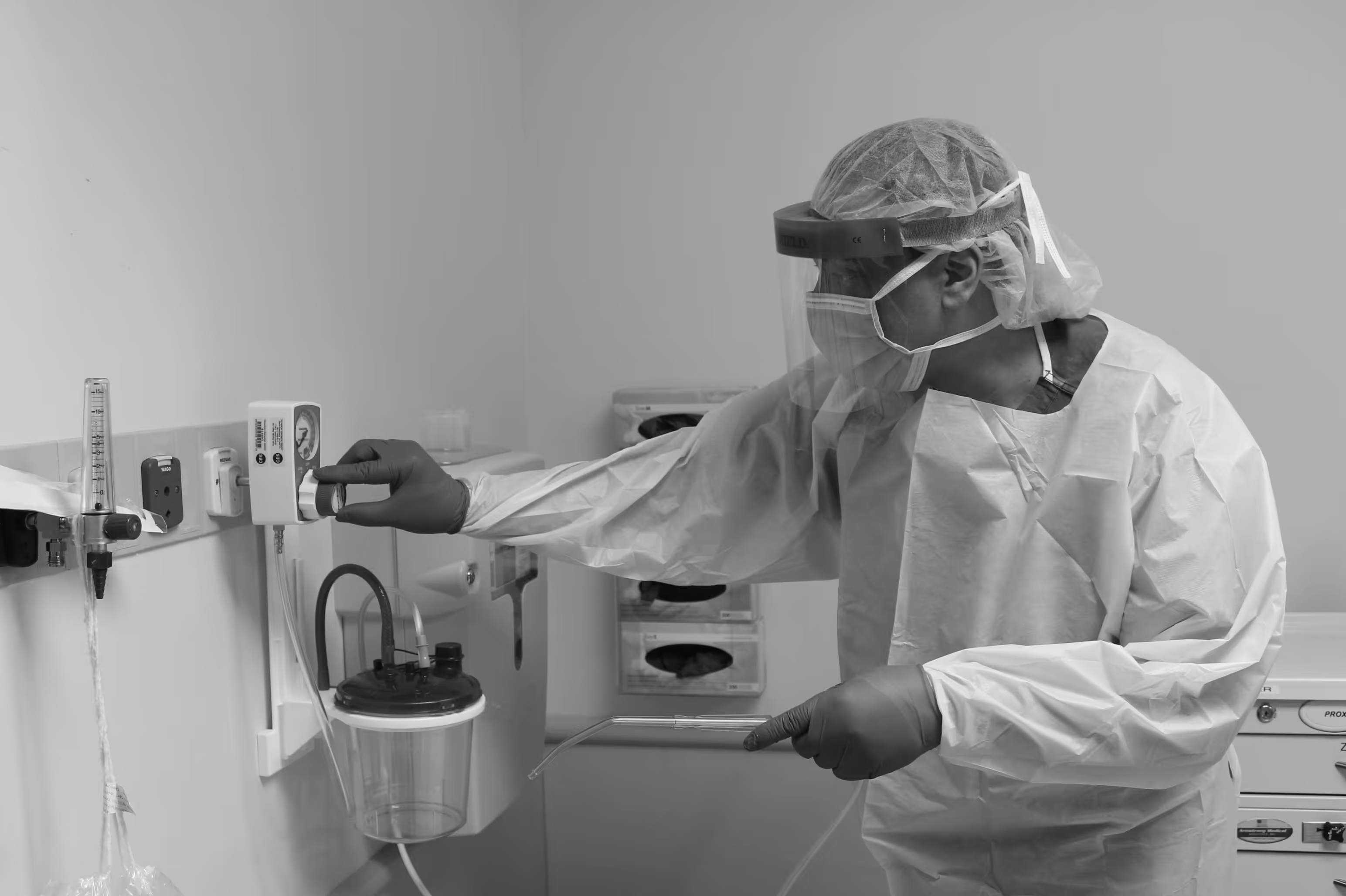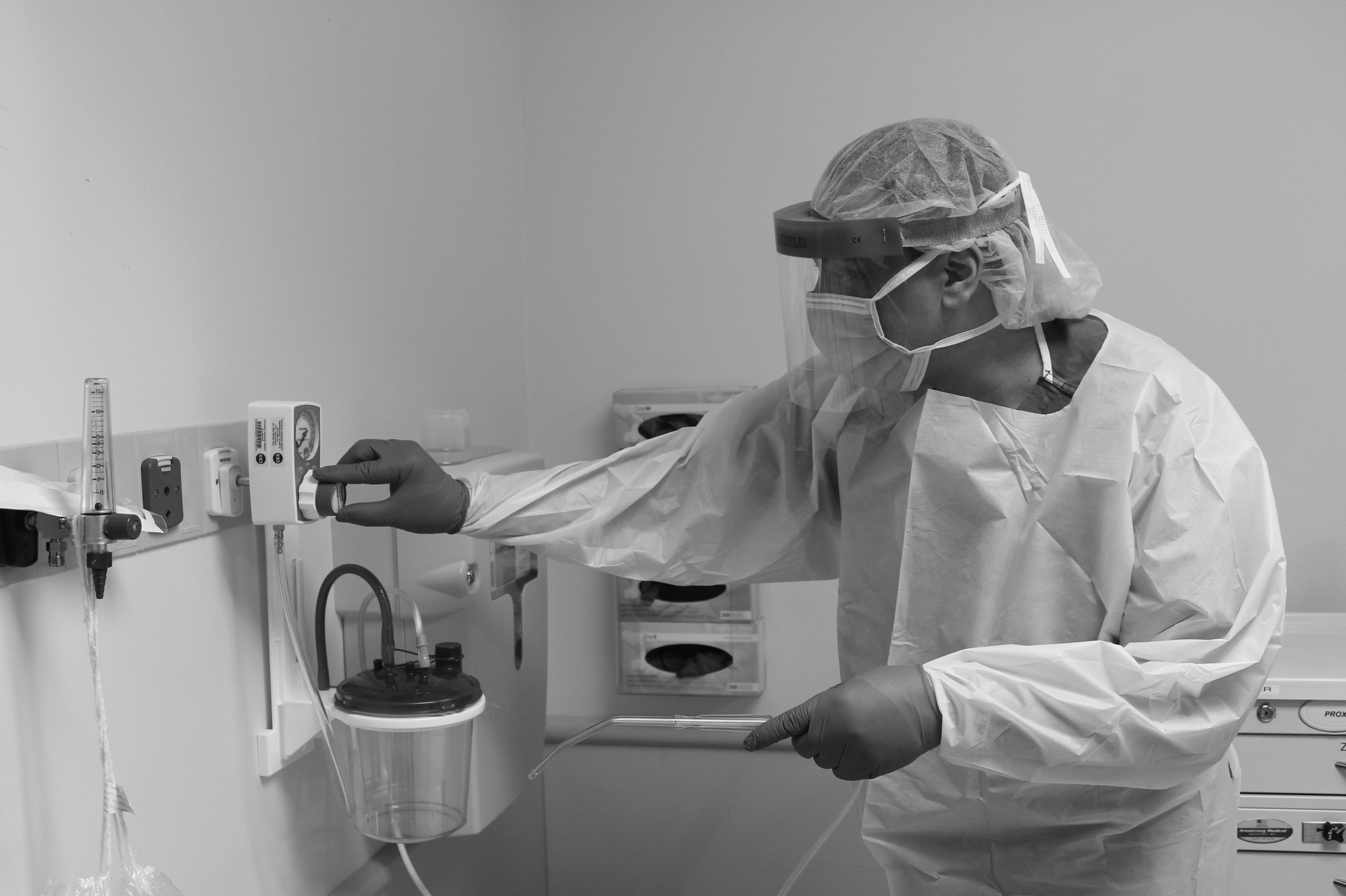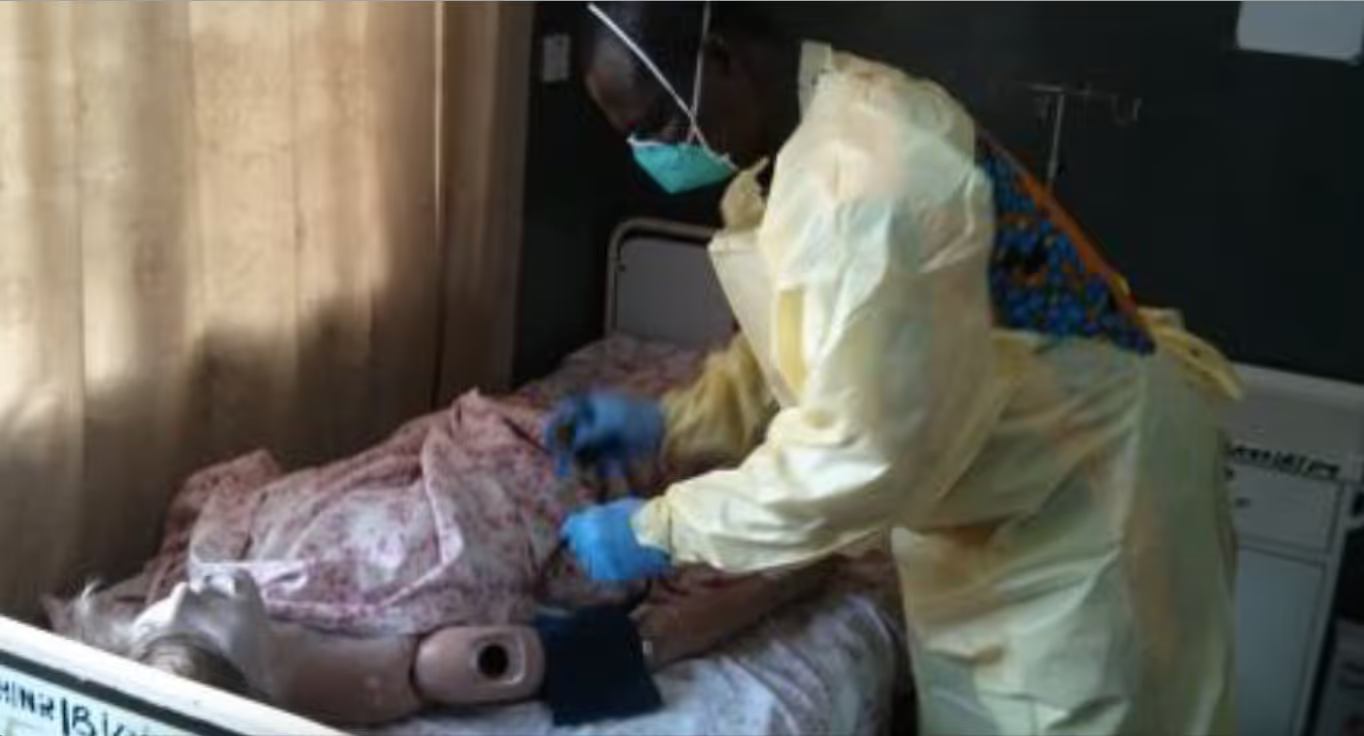Combating infectious diseases with simulation and human factors methodologies

Project overview
This project will utilise medical simulation and human factors methodologies to assess and train health professionals in-country to reinforce adherence to universal infection control measures and mitigate the transmission of highly virulent diseases.
Project solution
This project offers [specific solution or intervention] to tackle [challenge]. By implementing [strategies, tools, or innovations], the project aims to achieve [desired outcomes]. The approach is designed to [specific actions or methods] to bring about meaningful change in [community, region, or issue area].
Expected outcomes
This project aims to achieve [specific outcomes], such as [measurable results, improvements, or changes]. The expected impact includes [benefits to the target community, advancements in research or innovation, or long-term effects]. By the end of the project, we anticipate [specific changes or milestones] that will contribute to [broader goals or objectives].
WHAT IS THE HUMANITARIAN NEED?
Inadequate adherence to universal precautions for infection control can result in the unwitting participation of health workers in the transmission of disease. This could result in the emergence of drug resistant infections or the unfortunate propagation of highly infectious diseases in the event of disease outbreaks.
The appropriate use of universal precautions presents an opportunity to halt transmission/propagation in the early phase of an outbreak. It also protects health workers and patients from potentially disastrous consequences of hospital acquired infections.
WHAT IS THE INNOVATIVE SOLUTION?
Medical simulation is a proven tool for training personnel in safety critical industries. It has been shown to be more effective than traditional teaching methods in healthcare by increasing transmission of knowledge and skills, and promoting change in participant behaviour.
This project aims to provide a safe ‘realistic’ setting for health providers and participating health facilities to assess their existing infection control practices, identify vulnerabilities, and develop feasible universal precaution protocols according to recommended practice. This innovation will improve on existing practice by providing a safe environment to ‘fail’ and learn from errors in the delivery of healthcare.
This project will be focusing on the development and implementation phase of a process innovation.
This innovation provides an opportunity for health facilities to evaluate and improve their infection control practices with no risk to health workers or patients. It has the potential to breach the gap between recommended practice and feasible safe practice for health facilities in resource limited locations.
The training will be propagated to other facilities by local, in-country trainers, using a train-the-trainer model. This approach has the potential to promote sustainability of recommended practice and increase the impact of the intervention.
A human factors approach will provide no/low cost techniques that local institutions can independently use to assess their universal precaution protocols following the project.
WHAT ARE THE EXPECTED OUTCOMES?
- Creation of a manual on simulation training and evaluation of universal infection control practices.
- Publication of technical reports/manuscripts detailing the process, results and lessons learned for applying simulation in humanitarian response situations.
Project delivery & updates
Stay up to date with the latest developments from this project. Here, you will find details on what has been delivered, resources created, and regular updates as the project progresses. Access key documents, reports, and other materials to see how the project is making an impact.




